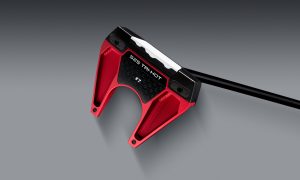
For decades, golf has been the undisputed king of business schmoozing, its sprawling fairways offering a discreet backdrop for power talks. But a new contender—pickleball—is paddling its way into the scene, challenging the old guard with its accessibility and trendy appeal. So, which sport is the ultimate networking champion for Malaysia’s corporate crowd? Let’s break it down, focusing on what makes each tick in our unique business landscape.
Golf: The classic corporate playground
Golf has long been the go-to for Malaysia’s corporate elite. Picture this: a sunny morning at a golf course, executives in polo shirts strolling the greens, the clink of a driver meeting the ball followed by a casual chat about multimillion-ringgit deals. It’s a scene as familiar as nasi lemak on a breakfast table. Golf’s appeal lies in its leisurely pace—18 holes can stretch over four or five hours, giving ample time to bond, strategise, and sip a cold drink at the clubhouse afterwards.
In Malaysia, golf carries a certain prestige. Memberships at top-tier clubs signal status—consider it a corporate calling card. The sport’s exclusivity aligns with the hierarchical nature of Malaysian business culture, where face-to-face rapport with corporate giants often seals the deal. Plus, the lush courses outside the city offer a serene escape from KL’s traffic jams, making it a perfect setting for relaxed, high-stakes conversations.
But golf isn’t without its drawbacks. It’s expensive—green fees, caddy costs, and equipment can easily run into hundreds of ringgit per outing. It’s also time-intensive, a luxury not every busy CEO or start-up founder can afford. And let’s be honest: for the uninitiated, swinging a club at a tiny ball while trying to impress a client can feel more like a public humiliation than a networking win.
Pickleball: The new kid on the corporate block
Enter pickleball, the hybrid of tennis, badminton, and ping-pong that’s been dubbed “the fastest-growing sport in Malaysia.” Since its arrival around 2019, it’s exploded across Kuala Lumpur, Selangor, and even East Malaysia, with courts popping up faster than bubble tea stalls. These days, you’ll find corporate types swapping briefcases for paddles, rallying over a net in a game that’s over in an hour or two.

What makes pickleball a networking contender? For one, it’s accessible. A paddle costs as little as RM29 on Shopee, and court rentals of around RM30 per hour are a fraction of golf’s price tag. It’s also easy to learn, especially for Malaysians already handy with a badminton racket. A newbie can pick up the basics in minutes, levelling the playing field for junior execs mingling with bigwigs. Plus, its fast pace and doubles format encourage teamwork and quick banter—perfect for breaking the ice.
Pickleball’s rise mirrors Malaysia’s shifting corporate vibe. Younger entrepreneurs and Gen Z professionals, who might baulk at golf’s stuffy image, are drawn to its trendy, inclusive feel. Companies often organise team-building sessions that double as networking hubs. And with courts often nestled in urban areas, it’s a quick lunchtime or after-work option—no need to schlep to a far-flung resort.
But pickleball has its limits. Its short games leave less time for deep conversation compared to golf’s leisurely strolls. And while it’s gaining traction, it lacks the cultural cachet of golf in Malaysia’s upper echelons—pickleball hasn’t yet become the sport where you bump into a minister or tycoon.

Malaysian context: Culture, cost, and connections
In Malaysia, networking isn’t just about the sport—it’s about the vibe. Golf fits the traditional corporate mould: hierarchical, prestigious, and tied to the old boys’ club of business. It’s where you might spot a property developer or a tech mogul quietly hashing out a partnership over a putt. The post-game lunch at the clubhouse extends the networking into a social ritual, a key part of Malaysian deal-making.
Pickleball, though, reflects a more modern Malaysia. Its affordability and inclusivity resonate with the start-up scene. It’s less about status and more about fun. The sport’s social media buzz also appeals to younger corporates who value visibility and community over exclusivity.
Cost is a significant factor, too. Golf’s high entry barrier— say, RM500 for a day out versus RM50 for pickleball—makes the latter a no-brainer for the cash-strapped. Yet, golf’s prestige keeps it relevant, where image is everything.

The verdict
So, which sport wins? It depends on your corporate crowd. If you’re courting Malaysia’s C-suite elite—think CEOs of GLCs or family-run conglomerates—golf remains the gold standard. Its slow burn and high-status venues align with the patience and prestige of big-ticket deals. But if you’re a young entrepreneur, a tech disruptor, or a mid-level manager looking to connect across generations, pickleball’s your ace. It’s quick, cheap, and lets you network without needing a handicap—or a fat wallet.
In Malaysia’s corporate world, both sports have their place. Golf is the grand old dame, pickleball the scrappy upstart. Why not play both? Tee off with the bosses on Saturday, then paddle up with the team on Monday. Flexibility might just be the best networking move of all.










